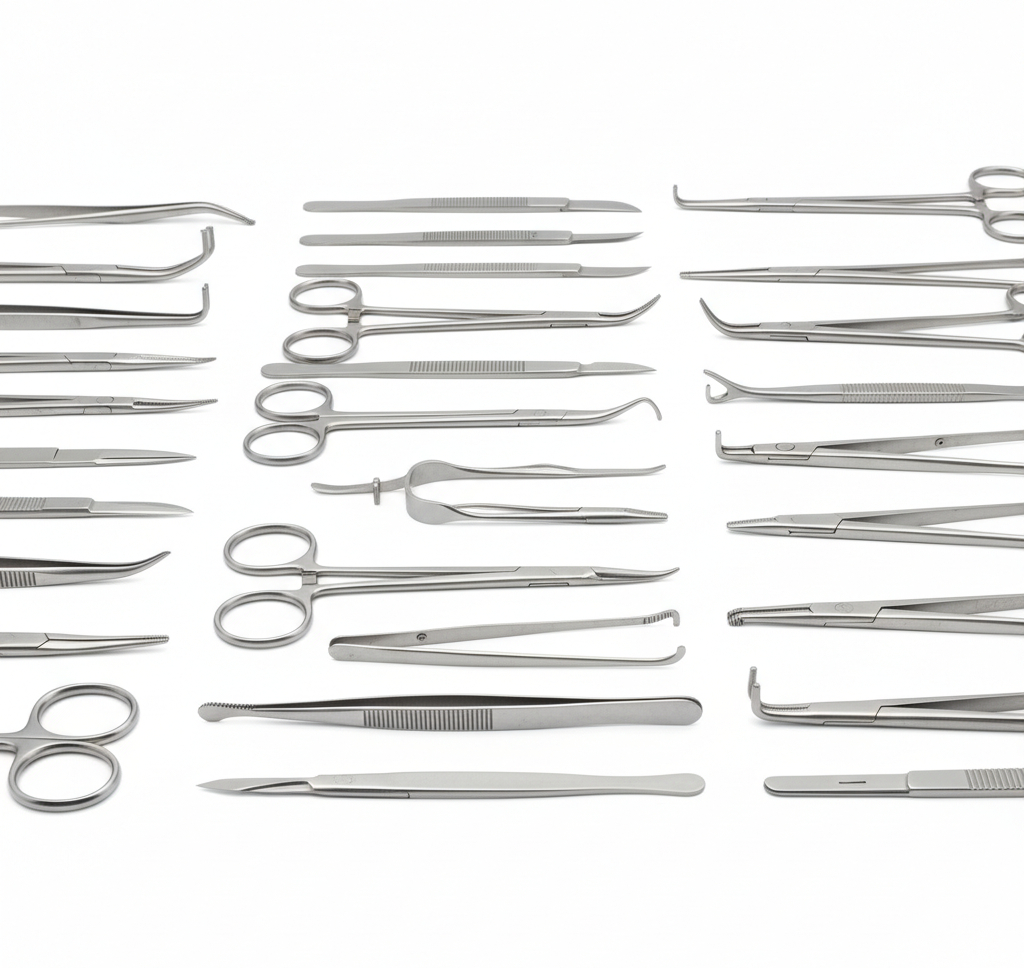The healthcare industry depends on high-quality surgical instruments for safe and successful medical procedures. From scalpels and scissors to forceps and retractors, every tool plays a vital role in patient care. With the rise of online marketplaces and global suppliers, finding surgical instruments for sale has become easier than ever.
In this comprehensive guide, we will explore different types of surgical instruments, their uses, buying considerations, and where to find the best deals.
Why Surgical Instruments Matter
Before looking for surgical instruments for sale, it’s important to understand why quality instruments are so essential:
- Precision and accuracy – A sharp scalpel or reliable forceps ensures successful procedures.
- Patient safety – Poor-quality tools increase risks of infection or complications.
- Durability – Stainless steel instruments last longer with proper care.
- Compliance – Certified instruments meet international healthcare standards.
Types of Surgical Instruments for Sale
Surgical instruments can be classified into categories based on their functions. Knowing these categories helps buyers choose the right tools for their needs.
1. Cutting and Dissecting Instruments
These tools are used to cut tissues, organs, or sutures.
- Scalpels – Precise blades for skin incisions.
- Surgical scissors – Mayo (for tough tissue), Metzenbaum (for delicate tissue).
- Bone saws and osteotomes – Used in orthopedic and neurosurgery.
2. Clamping and Occluding Instruments
Used to control bleeding and restrict blood flow.
- Hemostats – Clamp blood vessels during surgery.
- Bulldog clamps – Common in cardiovascular procedures.
- Aneurysm clips – Specialized for neurosurgery.
3. Retracting and Exposing Instruments
These instruments provide visibility and access to the surgical site.
- Handheld retractors – Simple tools like Senn retractors.
- Self-retaining retractors – Balfour or Weitlaner retractors that stay in place.
- Speculums – Used to open natural body cavities.
4. Grasping and Holding Instruments
These tools help surgeons hold tissue or other instruments.
- Forceps – Adson (for delicate tissue), Allis (for firmer grip).
- Needle holders – Secure suturing needles.
- Towel clamps – Hold surgical drapes in place.
5. Suturing and Stapling Instruments
Used for wound closure after procedures.
- Needle drivers – For handling suturing needles.
- Surgical staplers – Quick closure for gastrointestinal and skin surgeries.
- Ligature carriers – For deep or hard-to-reach sutures.
6. Specialty Surgical Instruments
Different fields require specialized instruments.
- Orthopedic – Bone cutters, drills, plates, screws.
- Neurosurgical – Craniotomes, aneurysm clips.
- Dental – Elevators, forceps, scalers.
- ENT (Ear, Nose, Throat) – Nasal speculums, ear forceps.
Materials Used in Surgical Instruments
When searching for surgical instruments for sale, buyers should pay attention to materials:
- Stainless steel – Durable, rust-resistant, and easy to sterilize.
- Titanium – Lightweight and corrosion-resistant, often used in microsurgery.
- Tungsten carbide – Enhances durability and sharpness of cutting edges.
- Disposable plastic instruments – Used for single-use purposes to reduce infection risks.
Where to Find Surgical Instruments for Sale
With globalization, medical professionals and buyers have multiple sources:
1. Direct Manufacturers
Buying directly from surgical instrument manufacturers ensures competitive pricing and quality assurance. Many exporters from countries like Pakistan, Germany, and the USA specialize in surgical instruments.
2. Medical Supply Companies
These companies provide a wide range of instruments along with customer support, warranties, and fast shipping.
3. Online Marketplaces
Platforms such as Alibaba, Amazon, and eBay often list surgical instruments for sale. However, buyers should verify certifications before purchasing.
4. Specialized Distributors
Healthcare distributors work closely with hospitals and clinics to provide customized instrument sets.
Factors to Consider Before Buying
When looking for surgical instruments for sale, keep these factors in mind:
Quality Standards
- Ensure instruments meet ISO, CE, and FDA certifications.
- Look for surgical-grade stainless steel.
Pricing
- Compare prices across suppliers.
- Balance affordability with quality—cheap tools often compromise safety.
Supplier Reputation
- Check customer reviews.
- Verify how long the supplier has been in business.
Sterility and Packaging
- Instruments should come in sterile or easily sterilizable packaging.
After-Sales Support
- Warranty and replacement options.
- Customer service for bulk orders.
Benefits of Buying in Bulk
Hospitals and clinics often purchase surgical instruments for sale in bulk. The advantages include:
- Lower cost per instrument.
- Uniformity across operating rooms.
- Better supplier relationships and discounts.
Caring for Surgical Instruments After Purchase
Buying surgical instruments is only the first step. Proper care ensures longevity and safety.
Cleaning
- Wash immediately after use to prevent corrosion.
- Use enzymatic cleaners for blood and tissue removal.
Sterilization
- Autoclaving with high-pressure steam.
- Chemical sterilization for delicate instruments.
Storage
- Store in dry, sterile trays.
- Inspect regularly for damage or wear.
Common Mistakes When Buying Surgical Instruments
- Choosing cheap, low-quality products – Leads to breakage and safety risks.
- Ignoring certification – Non-certified tools may be unsafe or illegal.
- Not researching suppliers – Increases risk of counterfeit instruments.
- Overlooking specialty needs – Every field requires different tools.
SEO Importance of “Surgical Instruments for Sale”
Targeting surgical instruments for sale as a keyword benefits:
- Medical suppliers – Attract global buyers.
- E-commerce platforms – Rank for product searches.
- Healthcare blogs – Educate professionals about instrument categories.
- Export businesses – Generate leads for international trade.
Final Thoughts
Finding high-quality surgical instruments for sale is crucial for healthcare providers, hospitals, and clinics. By understanding categories, materials, and supplier reputations, buyers can make informed decisions that ensure patient safety and surgical success.
Whether purchased directly from manufacturers, through medical supply companies, or via online distributors, surgical instruments should always meet the highest quality standards. Investing in durable, certified tools not only saves costs in the long run but also enhances patient care.

